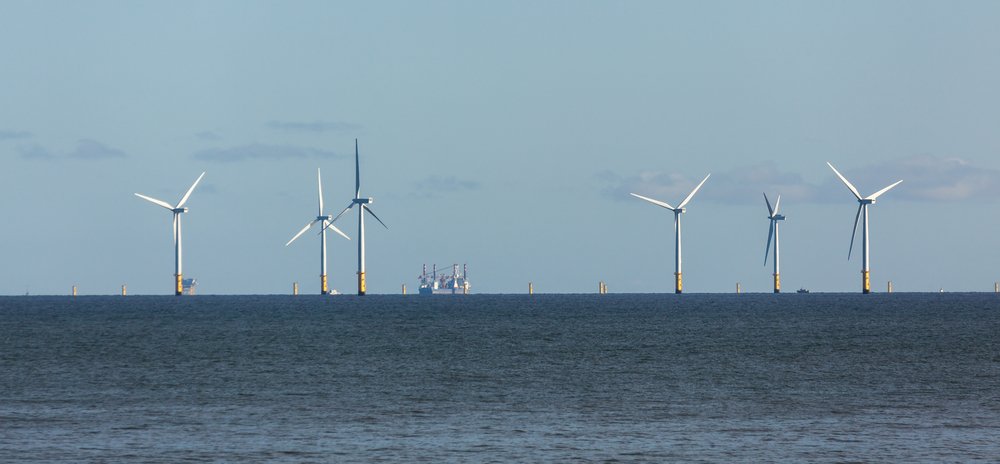The debate surrounding Chinese wind turbines is now reaching the North Sea. Offshore wind power no longer represents just the energy transition and climate goals, but also geopolitical tensions. Luxcara, a Hamburg-based investor, has distanced itself from Chinese proposals following public pressure. The “Waterekke” and “Waterkant” projects will exclusively use turbines from Siemens Gamesa. The North Sea is thus becoming the scene of a power struggle between the energy industry and security policy. (welt: 27.08.25)
Billion-dollar contracts in the North Sea
This development represents a massive loss for the manufacturer Mingyang. The “Waterkant” wind farm, in particular, was planned to install 19 Chinese wind turbines, each with an output of 15.5 megawatts. This would have enabled the company to enter the German market, which promises enormous growth in offshore wind power. Germany plans to increase the capacity of its North Sea turbines to around 30,000 megawatts by 2030.

The dominance of the Far East is already evident. Of the ten largest producers in the offshore wind power sector, seven are from China. Besides Siemens Gamesa, only Vestas from Denmark and GE Vernova from the USA are holding their own. Fears of a dependency scenario are intensifying, as the solar industry has already collapsed under cheap imports from China. This also puts pressure on the energy transition.
Safety risk from Chinese wind turbines
Politicians and security authorities are expressing serious concerns about the construction of Chinese wind turbines in German territorial waters. Roderich Kiesewetter, CDU foreign policy spokesman, explained in the Handelsblatt: “This is a security risk for our NATO partners, especially in the North Sea.” He is referring to the potential access to sensitive data on military movements and energy infrastructure.
In addition, the Bundeswehr is analyzing scenarios for a targeted interruption of the energy supply in the event of a conflict with Beijing. Even the widespread use of internet-enabled inverters from China in solar systems is considered a potential security risk. “Xi Jinping can shut off Germany’s power,” wrote the Welt am Sonntag newspaper. This warning now extends to offshore wind power, thus threatening key plans for the energy transition.
Luxcara points to synergy effects
Luxcara Managing Director Holger Matthiesen officially justified the withdrawal with efficiency advantages: “Equipping both North Sea wind farms with the same turbine type would enable us to more closely coordinate the development, construction, and operation of both projects.” But this argument already existed when the decision was still in favor of Chinese wind turbines.
A project manager emphasized to Bloomberg: “We felt the pressure and also the public controversy. But that had no influence on our decision, which was based solely on the synergy effects and the better offer.” European manufacturers have since offered significantly more attractive terms. Nevertheless, it remains questionable whether the safety risk was also a decisive factor.
Trade conflict as a threat to the energy transition
Officially, the German government distances itself from any influence. The Ministry of Economic Affairs stated that this was a purely business decision. However, a connection to security policy considerations is obvious. A trade conflict with China could severely impact the energy transition, as Chinese wind turbines and solar modules dominate the market.
Over 90 percent of the solar modules installed in Germany come from China, and even European offshore wind turbines contain more than 60 percent of Chinese components. Should a trade conflict escalate, expansion plans in the North Sea and throughout Europe could stall. This means that energy policy is increasingly merging with geopolitical tensions – a direct threat to the energy transition.
USA stops offshore wind power project
One example of the explosive nature of the situation is the halt in construction of a wind farm off Rhode Island. The Danish company Orsted was forced to halt work on the “Revolution Wind Project” even though 45 of 65 turbines had already been installed. US authorities cited national security concerns as the reason for this.
The decision caused Orsted’s share price to plummet by almost 19 percent. Other companies in the offshore wind power sector also came under pressure. With his decision, President Trump escalated the global trade conflict over energy projects. This demonstrates that the North Sea could also become a more significant geopolitical flashpoint in the future.
